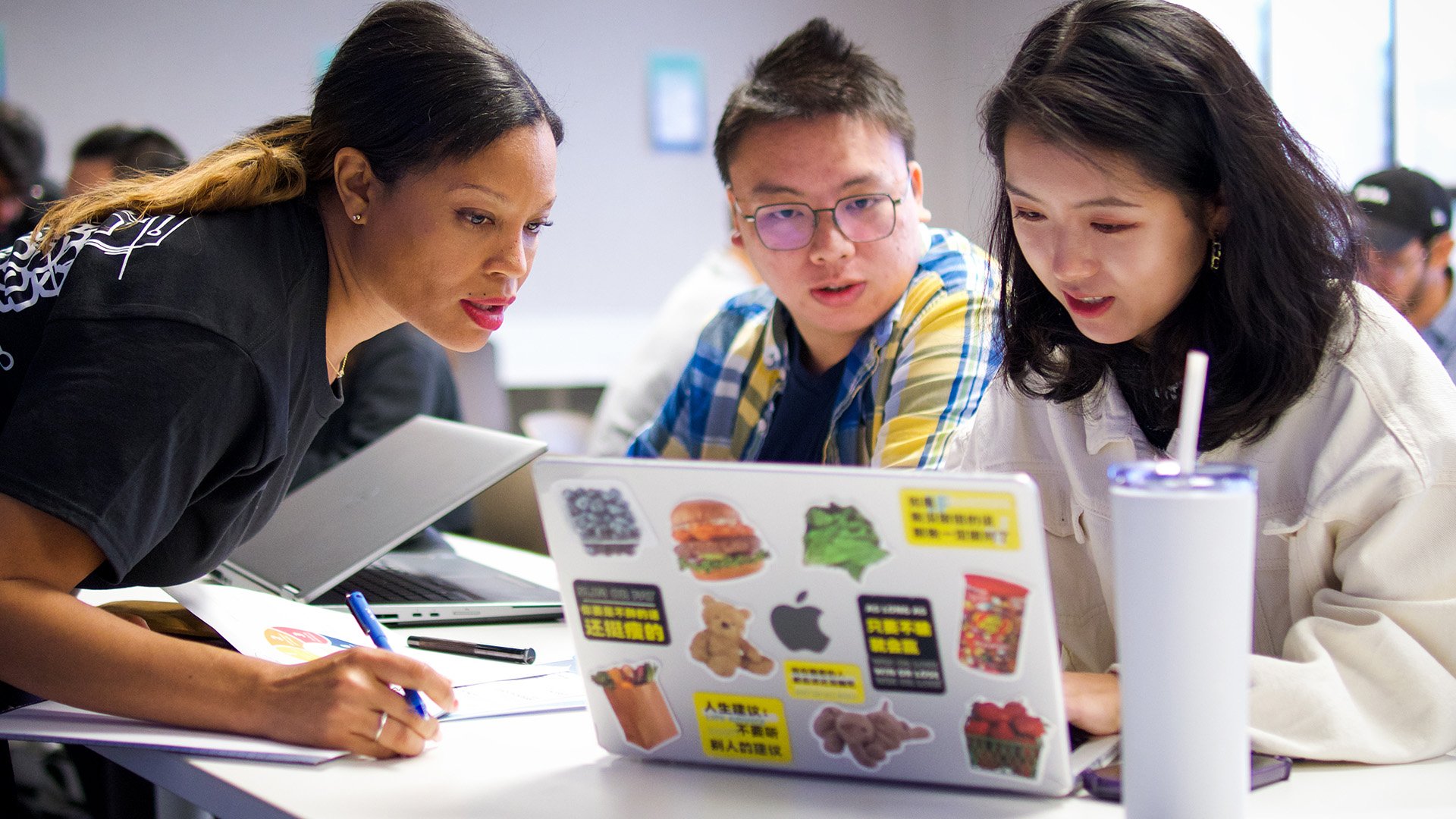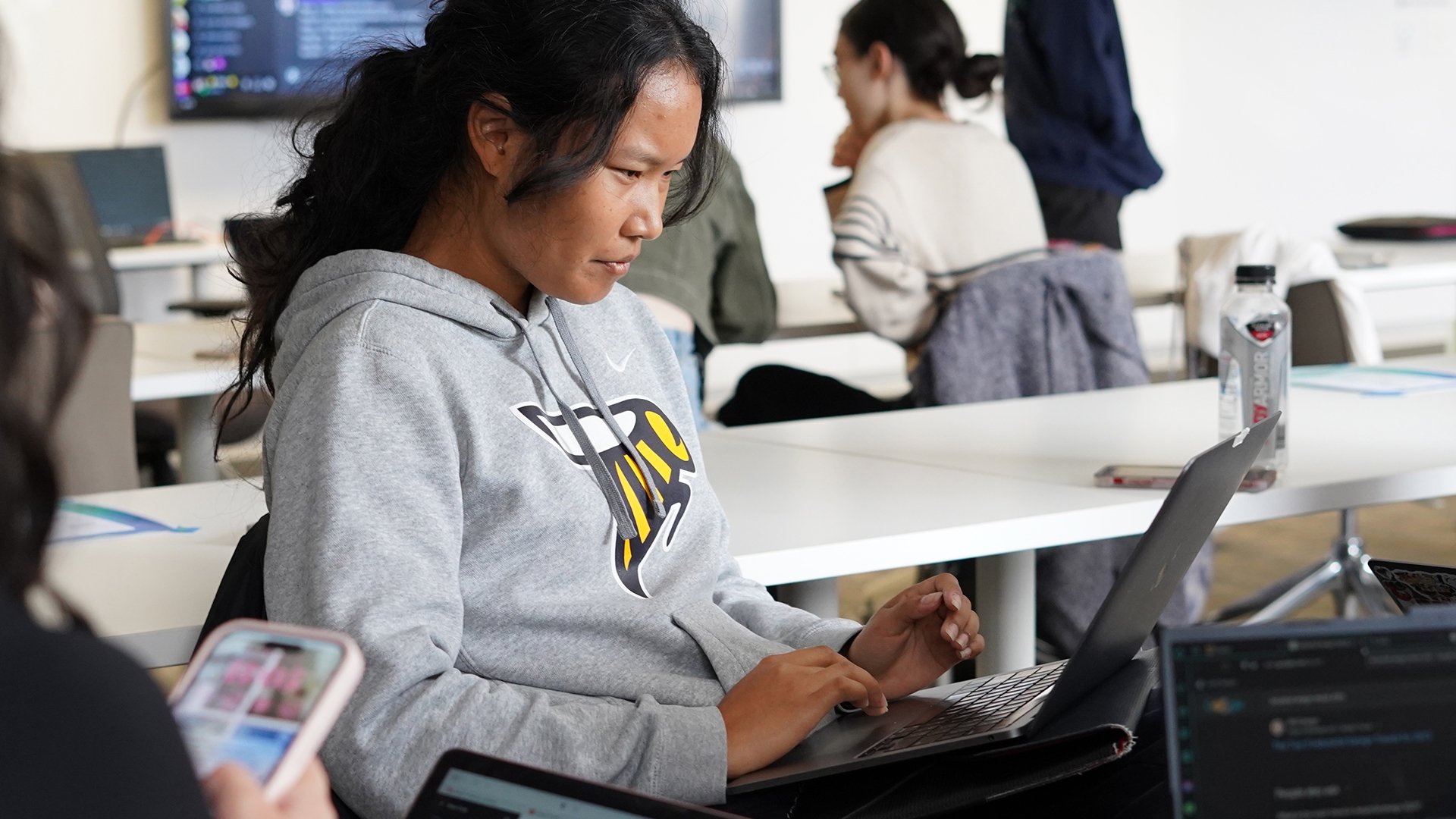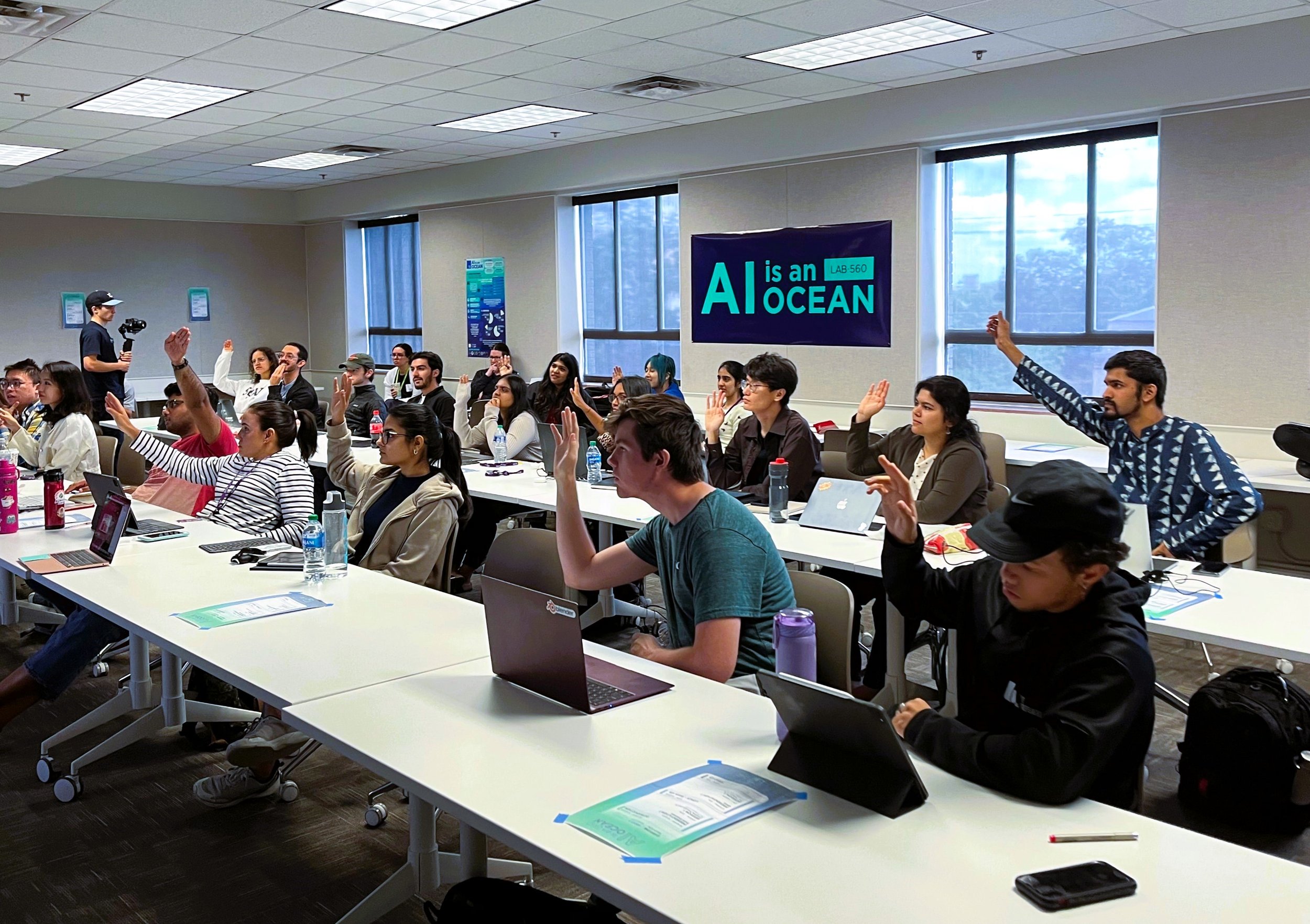About LAB560
Shaping creativity, pioneering innovation.
Better design research creates a better world. Under the guidance of expert SCADpro faculty, students learn principles and techniques to conduct future-focused research that is actionable across all functions of an organization.
LAB560 courses use generative design research to connect data to events, design future scenarios, and illustrate valuable business opportunities.
Meet the Team
-

Seth Leister
-

Mars Canada
-

Nihar Mehta
-

Lindsay Brine
-

Ryan Spears
-

Jagrati Bahety
-

Amanda Bendis
-

Anushka Nigam
-

Mickey Nemier
-

Charmarlina Brazile
-

Quincy Farris
-

Nick Dine
Understand the basics of generative artificial intelligence.
Prototype generative products and services using existing and created AI tools.
Course Objectives
Understand the glossary of terms and associated foundational concepts related to AI.
Leverage the SCAD community and programs to show the diverse uses of generative AI tools.
Conduct robust secondary and primary research within the SCAD community and elsewhere.
Develop a plan for user testing within the SCADpro and SCAD community as a whole.
Generate meaningful insights from research analysis to create valuable business opportunities.
Present findings of research and prototyping with SCAD institutional representatives.
LAB560 Workshops
After reflecting on the needs of students, LAB560 devised the first AI co-creation workshop for SCADextra. This workshop facilitated student education and engagement with tools such as ChatGPT, Claude, Firefly, and Midjourney. Participant registration exceeded 60 spots, securing AI workshops as an interest among SCAD students.
Within these workshops, students can expect hands-on AI experiences, interactive discussions, and team-based activities in which they are asked to involve AI tools in the creative process.






Student Outreach: Developing Workshops to Advance AI Interaction
LAB560’s “AI is an Ocean” workshop was conducted twice in the Fall 2023 quarter, with 2 iterations. The primary iteration took place on October 20th, 2023, with AI tool introductions, 2 activities, and a brief discussion of AI ethical practices.
This first workshop was an incredible experience, fostering student interaction not only with AI, but with multiple student disciplines. In total, we had just over 25 participants and an online registration count of nearly 70 students.
From this workshop, we discovered some important points to have in mind while developing student-focused events:
Length: Workshop runtime should be accessible to a range of schedules
Complexity: Workshop content and activities should be easy to understand for all participants
Play: Workshops should encourage students to have fun with AI, allowing them to explore their curiosities beyond strict time constraints
Student Workshop Feedback
“I learned how to more easily communicate with AI tools to get desired results.”
“I learned about how to use [AI] ethically and accurately.”
“[The workshop] opened my mind a lot.”
Class Norms
Gain confidence in using generative AI tools.
We are all equals.
Every voice counts.
Vary tasks and responsibilities.
Foster a judgment-free environment.
Give everyone a time to shine.
Have clear, defined roles and tasks.
Learn by teaching.
Put our best foot forward.
Learn from both failures and successes.


